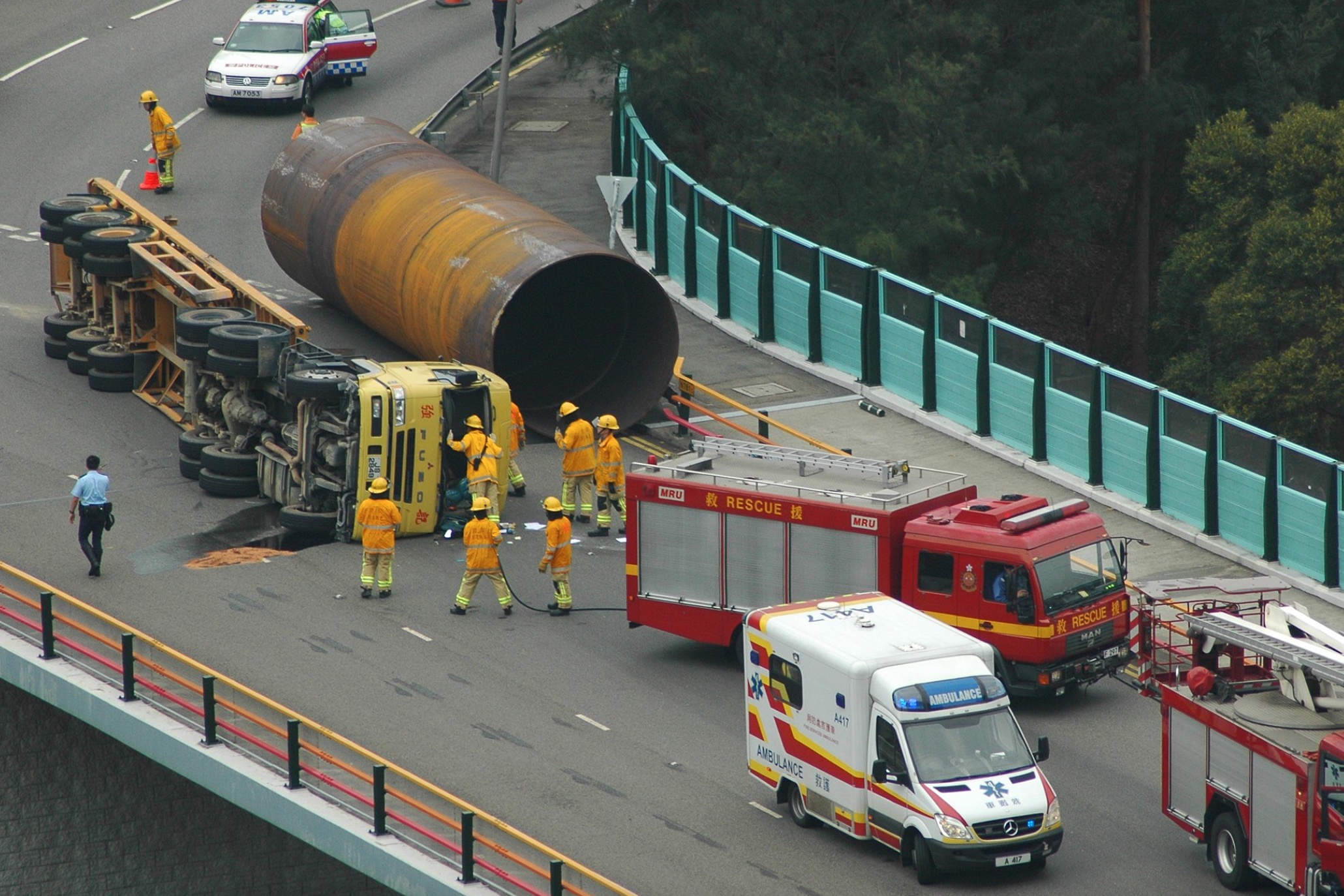If multiple parties are involved, each will try to minimize their liability, which means it can take time for all parties to agree.
No one wants to be in a semi-truck accident. Not only are they incredibly dangerous and potentially life-threatening — they’re also common. While not as prolific as car accidents, which injure millions of people across the U.S. each year, the number of 18-wheeler crashes occurring across the country continues to increase, despite a decrease in motor vehicle accidents overall.
While any motor vehicle accident can have a devastating impact, causing severe, long-term injuries or even death, truck accidents are particularly horrific.
In large part, this is because of their sheer size and weight. Even if a truck is driving at low speed, an accident can easily happen, leaving other vehicles to pile up, forced to swerve into oncoming traffic to avoid a collision, or facing the full impact of the truck’s enormous weight.
If you’re involved in a semi-truck accident, you might be entitled to claim compensation, but how long will your personal injury claim take?
Who’s at Fault?
Several factors determine how long a personal injury claim might take. One of the biggest is liability. In many personal injury cases, the question of who’s liable is fairly straightforward. If you slip on a wet surface at work because your employer neglected to place a sign, they can be held responsible for your injuries. Likewise, in a motor vehicle crash between two vehicles where the driver of the other car was undisputedly intoxicated, it’s reasonable to assume that the accident could have been avoided if they were sober.
But in a semi-truck accident, determining the liable party might not be so clear-cut. It’s rarely a simple case of the driver being responsible — the trucking company or manufacturer might be at fault. In some cases, multiple parties may be liable.
Parties that could be liable include:
The semi-truck driver: Most motor vehicle accidents are caused by driver error. If a semi-truck driver engages in reckless behavior, such as speeding, driving while intoxicated, driving while distracted, or falling asleep at the wheel, they may be responsible for the accident.
The trucking company: If a trucking company violates state or federal laws, such as requiring drivers to be on the road for more than 11 hours at a time or hiring drivers with a history of problems, they might be liable for an accident.
The manufacturer: If a truck accident is caused by a brake failure or tire blowout because of a manufacturing defect, the manufacturer could be found responsible. Other common vehicle defects include malfunctioning lights, transmission failure, steering or suspension failure, or a hitch malfunction.
The cargo company: Federal laws dictate maximum gross vehicle weights and the load a truck can carry. The Federal-Aid Highway Amendments of 1974 enforces weight limits of 20 thousand and 34 thousand pounds for single-axle and tandem-axle vehicles, respectively, while the total weight of a truck must not exceed 80 thousand pounds. Heavier trucks can have a much larger — even deathly — impact, and if a truck is found to violate this law, the cargo company might be liable for an accident.
To correctly determine which parties are liable for a truck accident, it’s important to conduct a thorough investigation into how the accident happened and the events that led to it. When multiple parties may be responsible, this can take time. It’s also likely that one or more parties will dispute the events or fight to minimize their liability, especially if they are at risk of paying out a hefty settlement. This will inevitably delay the process and affect how long your claim takes.
How Serious Are Your Injuries?
Another factor determining how long a semi-truck accident claim takes is the severity of your injuries.
Injuries can range from broken bones, sprains, cuts, and bruises to spinal cord injuries, burns, head trauma, and permanent disability.
While it’s understandable that you want to settle your claim as quickly as possible so that you can pay your medical bills and begin to move forward, it’s vital not to rush the process.
Having your claim take longer can be a good thing, as it gives you time to determine the full extent of your injuries and how they impact your life.
If you settle as soon as you receive an offer, you could receive less than you deserve, and you’ll also be prevented from receiving additional compensation — even if your injuries get worse. For example, a soft tissue injury might heal within a few months, but you may need ongoing physiotherapy to help you build strength and regain mobility. Even an injury as common as whiplash can cause delayed trauma.

This is why it’s vital to wait for the all-clear from your doctor or for information about any further assessments you may need, even though it may delay your claim.
Negotiating a Settlement
Most personal injury cases are settled without resorting to litigation — or going to court.
The settlement process can begin very early — chances are, you’ll be approached by an insurance adjuster not long after your accident to get your side of the story.
Assuming you don’t accept the offer on the table, negotiations can begin, and it can be a long and tedious process. If the driver was at fault, their insurer may attempt to mitigate blame by claiming you were also responsible for the accident. If multiple parties are involved, each will try to minimize their liability, which means it can take time for all parties to agree.
Taking Your Case to Court
If you believe you have a strong case, you can choose to take your case to court. Here, a judge will rule on all the evidence to determine if you should be entitled to compensation. If they decide in your favor, they will also compel the other party (or parties) to pay damages.
If the insurance company offers you a paltry settlement and refuses to budge, and you have strong evidence of the at-fault party’s liability, litigation can be a wise move. However, it’s not uncommon for it to take a year or more to get to trial, so if you’re looking for a swift resolution, you may be tempted to settle.
In any case, it’s recommended that you hire a semi-truck accident lawyer to take on your case. A skilled attorney will negotiate with insurance companies on your behalf, collect evidence to support your claim, help you navigate complex truck laws, and advise you on how much your claim might be worth and your likelihood of success.


Join the conversation!